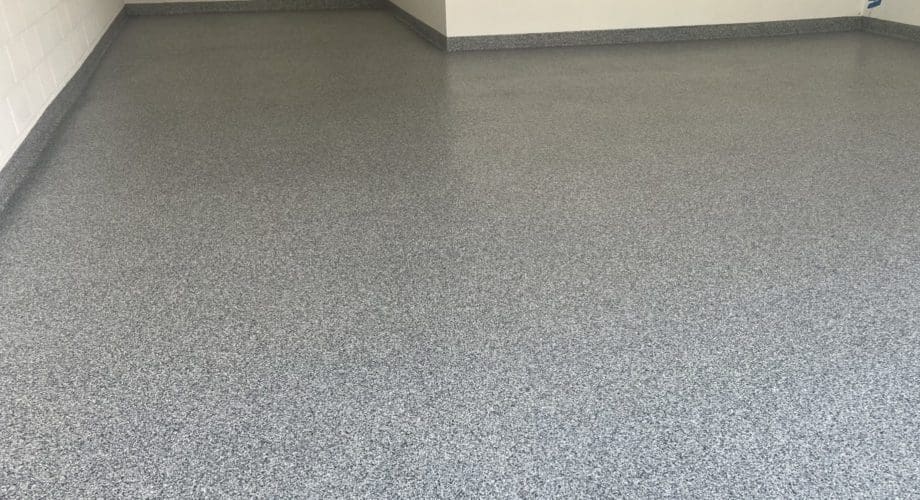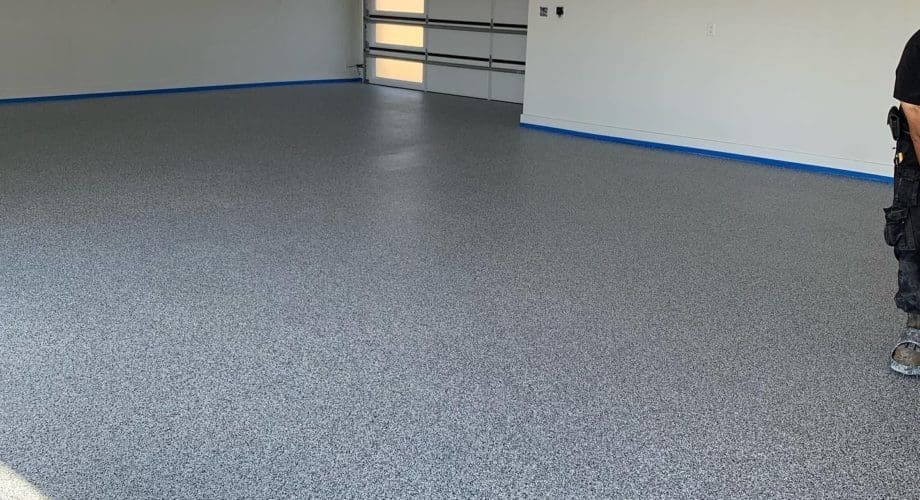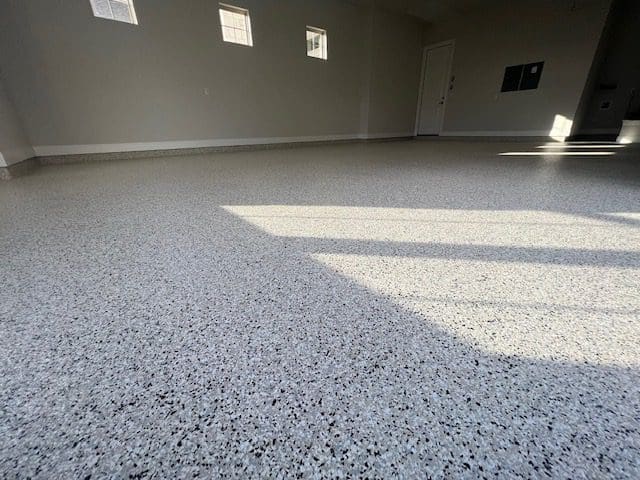Revitalize Your Garage with a Stunning Epoxy Floor Coating: The Ultimate Guide to Durable and Stylish Garage Makeovers
Service: Concrete Sealing, Epoxy Floor, Resin Flooring
Transform Your Garage with Epoxy Garage Floors
Your garage has the potential to become more than just a place to park your car or store your tools. With epoxy garage floors, you can transform your garage into a stunning and functional space that adds value to your home. Epoxy flooring offers a range of benefits, including durability, aesthetic appeal, and easy maintenance. In this comprehensive guide, we will delve into the world of epoxy garage floors, exploring their advantages, the installation process, design options, and essential maintenance tips. Whether you’re a DIY enthusiast or considering professional installation, this guide will provide you with the knowledge and inspiration to create the garage of your dreams.
Schedule ConsultationUnderstanding Epoxy Garage Floors
What is Epoxy Flooring?
Epoxy flooring is a durable and versatile solution that is commonly used in commercial, industrial, and residential settings. It consists of a combination of epoxy resin and a hardener, which chemically react to form a rigid and resilient surface. Epoxy garage floors are designed specifically for garage environments, offering enhanced protection against stains, chemicals, and wear and tear. They create a glossy and seamless finish that not only enhances the aesthetic appeal of your garage but also provides a functional and long-lasting flooring solution.
Advantages of Epoxy Garage Floors
Epoxy garage floors offer numerous advantages that make them a popular choice among homeowners. These advantages include:
- Durability: Epoxy coatings create a strong and durable surface that can withstand heavy traffic, impacts, and abrasion. They are more resistant to wear and tear compared to traditional concrete floors, ensuring longevity and reducing the need for frequent repairs or replacements.
- Protection: Epoxy garage floors provide a protective layer that seals the concrete, preventing moisture penetration, stains, and damage from chemicals, oil spills, or automotive fluids. This protective barrier also makes cleaning and maintenance easier.
- Aesthetics: Epoxy floors come in a wide range of colors, finishes, and decorative options, allowing you to customize the look of your garage according to your style. Whether you prefer a solid color, metallic effect, or decorative flakes, epoxy offers endless design possibilities.
- Safety: Epoxy coatings can improve safety in your garage by creating a slip-resistant surface. Various additives, such as anti-skid materials or textured finishes, can be incorporated to enhance traction and prevent accidents.

garage floor epoxy Granbury, TX
Installation Process of Epoxy Garage Floors
Surface Preparation
Proper surface preparation is crucial for a successful epoxy garage floor installation. The steps involved in surface preparation include:
- Cleaning: Thoroughly clean the garage floor to remove dirt, dust, grease, and any existing coatings or sealers. Use a degreaser or concrete cleaner and scrub the surface with a stiff-bristle brush or pressure washer.
- Repairing Cracks and Imperfections: Inspect the floor for any cracks, pits, or uneven areas. Fill these imperfections with a suitable epoxy crack filler or patching compound and level the surface using a trowel.
- Etching or Grinding: To ensure proper adhesion, it is essential to etch or grind the concrete surface. This step removes the top layer of the concrete and creates a rough texture for the epoxy to bond with. Use an etching solution or mechanical grinder for this purpose.
Applying the Epoxy Coating
Once the surface is properly prepared, you can proceed with the epoxy coating application:
- Priming: Apply a primer coat to the prepared surface. The primer enhances adhesion and helps the epoxy bond securely to the concrete. Use a roller or brush to evenly spread the primer and allow it to dry according to the manufacturer’s instructions.
- Mixing the Epoxy: Follow the manufacturer’s instructions to mix the epoxy resin and hardener. Ensure thorough mixing to achieve a consistent and homogenous blend. Consider the recommended pot life, which is the working time available before the epoxy starts to harden.
- Applying the Base Coat: Start by cutting in the edges of the garage floor epoxy using a brush or edging tool. Then, use a roller or squeegee to apply the epoxy base coat to the rest of the floor. Work in small sections, spreading the epoxy evenly and avoiding puddles or excessive thickness.
- Optional Design Elements: While the base coat is still wet, you can incorporate decorative elements such as colored flakes or metallic pigments. Sprinkle them evenly over the surface, allowing the excess to be collected and reused. The decorative elements add visual interest and texture to the epoxy floor.
- Top Coat Application: After the base coat cures, typically within 24 to 48 hours, apply the top coat. The top coat provides additional durability, gloss, and protection to the epoxy floor. Follow the same application process as the base coat, ensuring even coverage.
- Curing and Drying: Give the epoxy floor ample time to cure and dry. This process usually takes several days, during which it is essential to avoid foot traffic or placing heavy objects on the surface. Follow the manufacturer’s instructions for curing times and recommended post-installation care.
Design Options for Epoxy Garage Floors
Solid Colors
One of the simplest and most popular design options for epoxy garage floors is a solid color. Solid colors provide a clean, sleek, and modern look to your garage. You can choose from a wide range of epoxy colors to match your preferences or complement your existing decor. Solid-colored epoxy floors create a uniform and polished appearance, enhancing the overall aesthetics of your garage.
Metallic Effects
If you desire a more dynamic and luxurious look, consider incorporating metallic effects into your epoxy garage floor. Metallic epoxy coatings create a mesmerizing, three-dimensional, and pearlescent appearance that mimics the luster of natural minerals or the depth of a reflective surface. The metallic pigments blend with the epoxy resin, creating unique patterns and swirls that vary depending on the application technique and color combination. The result is a stunning floor that adds a touch of elegance and sophistication to your garage.
Decorative Flakes
Decorative flakes, also known as color flakes or vinyl chips, offer a versatile and customizable design option for epoxy garage floors. These flakes are available in various colors, sizes, and shapes, allowing you to create a floor that suits your style. The flakes are broadcasted onto the epoxy base coat, adding texture, depth, and visual interest to the surface. They also provide additional slip resistance and can help to hide imperfections or minor wear over time. By choosing the right combination of flakes, you can achieve a floor that complements your garage’s overall theme or matches your taste.
Custom Designs
For those seeking a truly unique and personalized epoxy garage floor, custom designs offer endless possibilities. You can collaborate with a professional installer to create intricate patterns, logos, or graphics embedded within the epoxy floor. Custom designs require careful planning, attention to detail, and the expertise of an experienced installer. By incorporating elements such as stencils, multiple colors, or specialized techniques like epoxy marbling or epoxy terrazzo, you can transform your garage into a work of art that reflects your individuality.
Maintenance Tips for Epoxy Garage Floors
Regular Cleaning
Regular cleaning is essential to maintain the beauty and longevity of your epoxy garage floor. Follow these cleaning tips:
- Sweeping or Dust Mopping: Remove loose dirt, dust, and debris regularly using a soft-bristle broom or dust mop. This helps prevent abrasive particles from scratching the epoxy surface.
- Gentle Cleansers: For routine cleaning, use a mild, non-abrasive cleaner or a pH-neutral floor cleaner mixed with warm water. Avoid harsh chemicals or abrasive cleaners that can damage the epoxy coating.
- Spill Cleanup: Immediately clean up any spills, such as oil, chemicals, or automotive fluids, to prevent staining or damage. Blot the spill with an absorbent cloth or paper towel, then clean the area with a gentle cleanser.
- Preventing Scratches: While epoxy floors are highly durable, they can still be susceptible to scratches from sharp objects or heavy furniture. Place felt pads under furniture legs, use floor mats or rugs in high-traffic areas, and avoid dragging or sliding heavy items across the floor.
- Moisture Protection: Protect your epoxy floor from moisture damage by using mats or rugs near entrance doors and areas prone to water or snow accumulation. Wipe up any water or spills promptly to prevent seepage into the epoxy coating.
- Long-Term Maintenance: Over time, your epoxy garage floor may show signs of wear or dullness. Consider applying a new top coat or clear sealer every few years to rejuvenate the appearance and restore the protective properties of the floor. Consult with a professional or the epoxy manufacturer for specific recommendations.
DIY vs. Professional Installation
Assessing Your Skills and Time Availability
Before deciding between a DIY installation or professional assistance for your epoxy garage floor, consider the following factors:
- Skill Level: Epoxy floor installation requires careful surface preparation, proper mixing and application techniques, and attention to detail. Assess your DIY skills and experience with similar projects to determine if you’re comfortable taking on the task.
- Time Commitment: DIY installations can be time-consuming, especially if you’re unfamiliar with the process. Consider the time available and your ability to dedicate consecutive days or weekends to complete the installation. Professional installers can often complete the job more efficiently.
- Tools and Equipment: Installing an epoxy floor requires specific tools and equipment, such as grinders, rollers, and squeegees. Assess the availability and cost of acquiring or renting these tools before deciding on a DIY installation.
DIY Installation: Pros and Cons Pros:
- Cost Savings: DIY installation eliminates labor costs, which can be a significant portion of the overall expense.
- Sense of Accomplishment: Completing the project yourself can be rewarding and give you a sense of pride in your garage transformation.
- Flexibility: You have control over the timeline and can work at your own pace, taking breaks or making adjustments as needed.
Cons:
- Skill and Knowledge: DIY installation requires familiarity with surface preparation, epoxy application, and potential challenges that may arise during the process.
- Time-Intensive: DIY installations typically take longer, as you may need to research and learn the techniques involved and navigate any unforeseen issues.
- Limited Warranty: If any problems arise after the installation, you may not have the same level of warranty or support as you would with professional installation.

garage epoxy flooring Brownwood, tx
Professional Installation: The Benefits of Expertise
Professional installation offers several advantages for epoxy garage floors:
- Expertise and Experience: Professional installers have the knowledge, skills, and experience to ensure a high-quality and long-lasting epoxy floor. They understand the nuances of surface preparation, product selection, and application techniques, resulting in a superior finish.
- Time Savings: Professional installers work efficiently and can complete the installation in a shorter timeframe, minimizing disruptions to your daily routine.
- Access to Professional-Grade Materials: Professionals often have access to premium epoxy products that may not be available to the general public. These professional-grade materials offer superior durability, longevity, and aesthetic options.
- Warranty and Support: Reputable epoxy flooring companies typically provide warranties on their installations, offering peace of mind and assistance if any issues arise after the project is completed.
- Customization and Design Expertise: Professional installers can provide guidance and expertise in choosing the right design, colors, and finishes to achieve your desired aesthetic. They can also create intricate custom designs or effects that may be challenging for a DIY installation.
Epoxy garage floors offer a remarkable combination of durability, style, and low maintenance, making them an ideal choice for transforming your garage into a functional and visually appealing space. By understanding the fundamentals of epoxy flooring, exploring the design options, and considering the installation process and maintenance requirements, you can make an informed decision on the best approach for your garage project. Whether you choose a DIY installation or seek professional assistance, the result will be a stunning and resilient floor that enhances the value and enjoyment of your garage. Take the first step towards a garage makeover and unleash the full potential of your space with epoxy garage floors. Call AllStar Concrete Coatings for all your Decorative Concrete needs!
Free Consultation
Ready to learn more about how AllStar can help you? Take advantage of our free consultation to get the ball rolling.
Get Started
